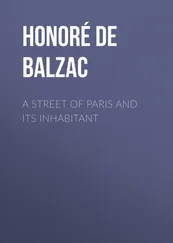Henry Edwards - Old and New Paris - Its History, Its People, and Its Places, v. 2
Здесь есть возможность читать онлайн «Henry Edwards - Old and New Paris - Its History, Its People, and Its Places, v. 2» — ознакомительный отрывок электронной книги совершенно бесплатно, а после прочтения отрывка купить полную версию. В некоторых случаях можно слушать аудио, скачать через торрент в формате fb2 и присутствует краткое содержание. Жанр: foreign_antique, foreign_prose, Путешествия и география, на английском языке. Описание произведения, (предисловие) а так же отзывы посетителей доступны на портале библиотеки ЛибКат.
- Название:Old and New Paris: Its History, Its People, and Its Places, v. 2
- Автор:
- Жанр:
- Год:неизвестен
- ISBN:нет данных
- Рейтинг книги:4 / 5. Голосов: 1
-
Избранное:Добавить в избранное
- Отзывы:
-
Ваша оценка:
- 80
- 1
- 2
- 3
- 4
- 5
Old and New Paris: Its History, Its People, and Its Places, v. 2: краткое содержание, описание и аннотация
Предлагаем к чтению аннотацию, описание, краткое содержание или предисловие (зависит от того, что написал сам автор книги «Old and New Paris: Its History, Its People, and Its Places, v. 2»). Если вы не нашли необходимую информацию о книге — напишите в комментариях, мы постараемся отыскать её.
Old and New Paris: Its History, Its People, and Its Places, v. 2 — читать онлайн ознакомительный отрывок
Ниже представлен текст книги, разбитый по страницам. Система сохранения места последней прочитанной страницы, позволяет с удобством читать онлайн бесплатно книгу «Old and New Paris: Its History, Its People, and Its Places, v. 2», без необходимости каждый раз заново искать на чём Вы остановились. Поставьте закладку, и сможете в любой момент перейти на страницу, на которой закончили чтение.
Интервал:
Закладка:
The cook – both the “cuisinier” and the “cuisiniêre” – has already been dealt with in a special chapter. It may here, however, be remarked, that though the best cooks, and certainly the most expensive ones, are in France, as in other countries, men, the female cook is far indeed from being held in disesteem. The “cordon bleu,” or blue ribbon, was a distinction conferred upon the female, not upon the male cook; and a woman who cooks particularly well is called to this day a “cordon bleu.” Such a woman was in the service for many years of the well-known “bourgeois de Paris,” as Dr. Véron loved to describe himself.
If every French servant looks for some particular perquisite, they all expect a gratuity at the New Year. One of the greatest curses and greatest blessings which rest upon Paris is the custom of presenting New Year’s gifts. The word “étrenne” is at once a terror and a joy to Parisians, according as they belong to the class who give or the class who receive. In London no gentleman would venture to omit at Christmas-time to “tip” any one of the underlings who had ever cleaned his boots, lifted his portmanteau, or twisted the ends of his moustache. But in Paris, if a gentleman failed at the new year to present “étrennes” to his boot-black, his messenger, or his valet, derision and infamy would, according to a French writer, pursue him, not merely throughout this life, but even beyond the tomb.
Cardinal Dubois, who had a reputation for niggardliness, used to give his servants their “étrennes” in a manner which they could hardly have relished. His major-domo came to him one New Year’s Day to demand the annual gratuity. “Étrennes!” exclaimed the cardinal; “yes, I will give you your étrennes. You may keep everything you have stolen from me during the last twelvemonth.”
Let us, before quitting the subject of the Parisian domestic, relate an anecdote or two. “When I come home,” said a master to his servant, “I often find you asleep.” “That, sir,” replied the man, “is because I don’t like to remain doing nothing.”
A nobleman paid a visit to Fontenelle one day, and found him in a very bad humour. “What is the matter with you?” he asked. “The matter?” replied Fontenelle; “I have a valet who serves me as badly as if I had twenty.”
The Abbé de Voisenon preserved his gay humour to his very last gasp. Just before his death he caused the leaden coffin which he had ordered beforehand to be brought to his bedside. “There,” said he, “is my last overcoat.” Then, turning towards one of his servants of whom he had had reason to complain, he added, “I hope you will not wish to steal that too.”
A certain high official of Paris lived in the country, and, thanks to railway facilities, went home every evening to dine. On one occasion he arrived earlier than usual, and going into his kitchen found the cook in a decidedly unequivocal position, with a bottle in his hand, three-fourths of whose contents had already found their way into his stomach. “Ah, my fine fellow,” exclaimed the master, “I have caught you drinking my wine.” “It is your own fault, sir,” was the reply. “You were not due till four o’clock, and it is now hardly three.”
Our gallery of Paris types would scarcely be complete without a sketch of a very familiar personage who, though not peculiar to Paris, abounds there more than in other capitals. This is the “rentier,” the man of “small, independent means.” According to the etymology of the word, anyone should be called a rentier who lives on his “rentes” – the income, that is to say, derived from the letting of houses or farms; or the interest of money invested in the Funds. In practice, however, the name is given exclusively to the man who lives on the interest of money which he has invested in government securities. He has been described as the corresponding type, in English society, to the man retired from business. He lives modestly in the quarter of the Marais or of the Batignolles, as in England he might live at Clapham or Brixton, at Holloway, or Camden Town; and he passes a considerable portion of his time in some favourite café, reading a newspaper of moderate-liberal politics, or playing at dominoes. Condemned to economy, sometimes of the most parsimonious kind, he counts every lump of sugar brought to him by the waiter, and shows a great predilection for halfpenny rolls. In politics, without being an aristocrat, he is something of a conservative; and, while stickling for his rights, hates revolutions as sure to cause perturbations in the securities of the state.
It was doubtless a rentier from whose pocket the thief in Lord Lytton’s “Pelham” extracted, in a Paris café, a tiny packet which he had seen the owner put carefully away in his coat-tail pocket, and which, on being adroitly stolen and curiously examined, was found to contain, not a precious stone, but a lump of sugar. In the rentier’s defence it may be mentioned that during the great Napoleonic war, when a universal blockade had been declared against English exports, and when colonial produce was everywhere excluded from the ports of France, the price of sugar rose to such a height as to render this luxury difficult for persons of straitened means to indulge in.
The existence of such a number of rentiers in Paris goes far to demonstrate the prudence of the ordinary Frenchman. An Englishman with a few thousand pounds in his possession would, as a rule, speculate with it, instead of burying it in the Funds. The speculation would furnish him with active employment, whereas the permanent investment preferred by the average Frenchman involves an idle and somewhat ignoble life.
CHAPTER V.
PARISIAN CHARACTERISTICS
IN our last few chapters we have been glancing about Paris for different types of character. These are sufficiently varied even where they are not absolutely dissimilar from each other. But there is one characteristic which runs through the whole of them; the Parisian, be he great or small, rich or poor, never loses his national gaiety. He laughs through his tears and sometimes jests with his last breath.
This gaiety finds expression in manifold ways, and shows itself above all in innumerable anecdotes. If, as Dr. Johnson maintained, the dullest book is worth wading through if only it contains a couple of good anecdotes, no apology need be made for presenting in this chapter a few of those “bonnes histoires” in which Parisians delight, and which so often illustrate their character.
Let us begin with one which is very French and particularly Parisian. A poverty-stricken author, awaking suddenly at midnight, discerned in his garret a burglar feeling in his empty cash-box. The author burst into a laugh. The burglar, annoyed to find himself an object of ridicule, inquired what the author could find so particularly amusing. “A thousand pardons,” was the polite reply, “but I could not help smiling to see you searching in the dark for what I shall be unable to find in the daylight.”
A Parisian had been accustomed for twenty years to pass his evenings at the house of a certain Mme. R – . He lost his wife, and everyone expected he would marry the lady whom he had so assiduously visited. When however, his friends urged him to do so, he refused, saying, “I should no longer know where to pass my evenings.”
A general who had been beaten in Germany and in Italy perceived one day, hanging over his door, a drum inscribed with this device: “I am beaten on both sides.”
The Regent of Orleans wished to go to a masked ball without being recognised. “I know how to manage it,” said the Abbé Dubois. During the ball he set the Regent on his guard against disclosing his identity, by dint of sundry admonitory kicks. The victim, finding the clerical foot by no means a light one, whispered, “My dear Abbé, you disguise me too much.”
Читать дальшеИнтервал:
Закладка:
Похожие книги на «Old and New Paris: Its History, Its People, and Its Places, v. 2»
Представляем Вашему вниманию похожие книги на «Old and New Paris: Its History, Its People, and Its Places, v. 2» списком для выбора. Мы отобрали схожую по названию и смыслу литературу в надежде предоставить читателям больше вариантов отыскать новые, интересные, ещё непрочитанные произведения.
Обсуждение, отзывы о книге «Old and New Paris: Its History, Its People, and Its Places, v. 2» и просто собственные мнения читателей. Оставьте ваши комментарии, напишите, что Вы думаете о произведении, его смысле или главных героях. Укажите что конкретно понравилось, а что нет, и почему Вы так считаете.












